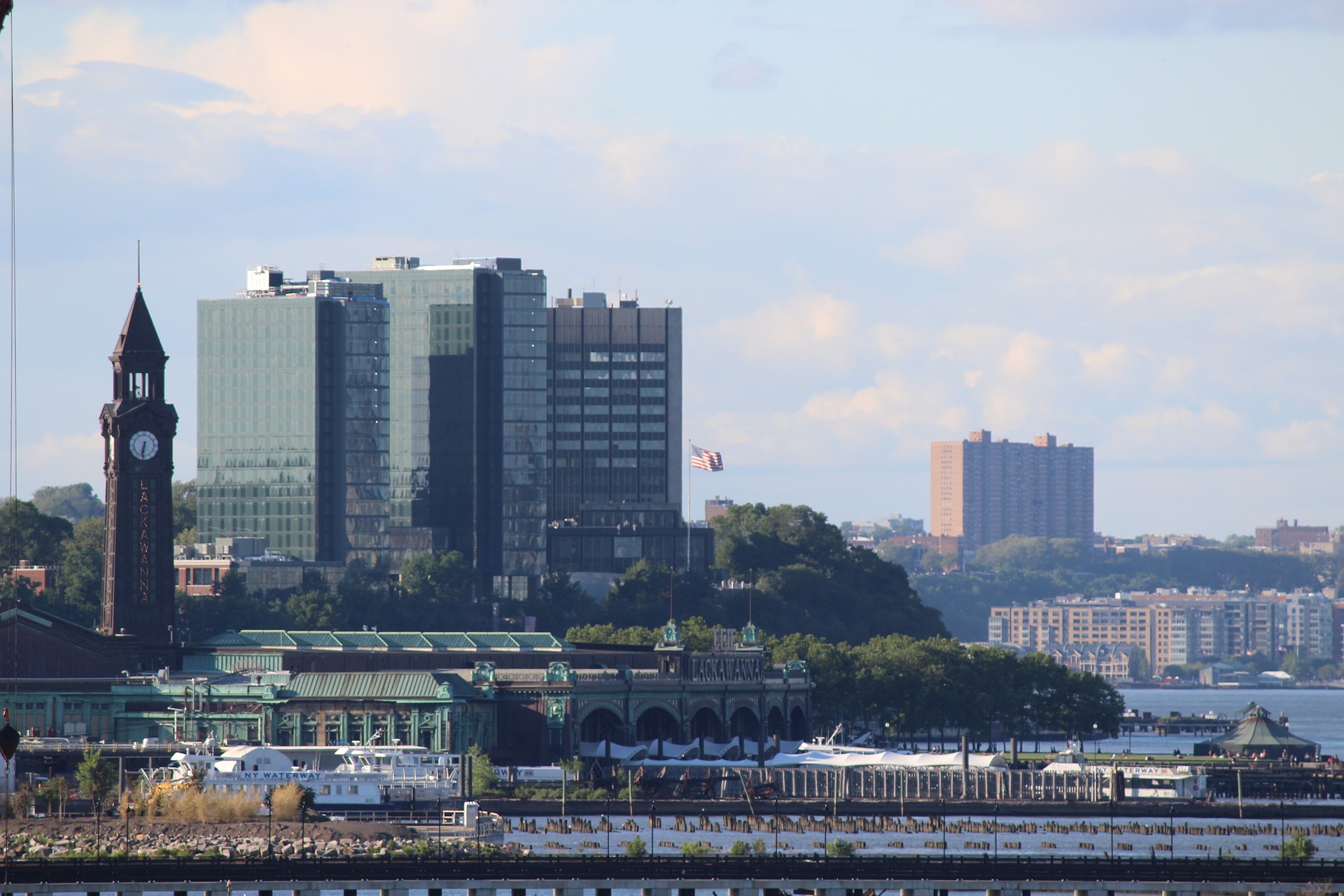Transportation policies enacted in Hoboken, N.J. over the past several years are paying off in the form of fewer pedestrian deaths and injuries.
The city has adopted daylighting, bike lanes, lower speed limits, and intersection redesigns to make its roads safer. The citywide speed limit was reduced to 20 miles per hour. Crosswalks have been painted and repaved to make it easier for drivers to see them. More than 40 curb extensions have been installed to direct cars farther from intersections. Bike lanes now grace about half of Hoboken’s roads.
The mayor says that a bucket of paint enables the city to create a curb extension and high visibility crosswalks to realize a much safer environment at a modest cost. The measures taken by Hoboken have resulted in no traffic death since January 2017, with injuries falling 41%. This safer environment occurred while pedestrian deaths in the U.S. reach 40-year highs.
Daylighting, implementing measures that prevent cars parking at the corner of an intersection, has been a key strategy. This initiative was realized with bump outs—extensions of sidewalks or the creation of small rain gardens in lieu of additional pavement, or the addition of bike racks or bollards.
Related Stories
| Aug 2, 2013
Threat of more powerful coastal storms could curtail development
Led by Stanford University’s Natural Capital Project, researchers mapped the intensity of hazards posed to communities living along America’s coastlines from rising seas and ferocious storms now and in the decades to come.
| Jul 26, 2013
AGC launches new coalition to help bring tax relief to construction sector
Associated General Contractor of America (AGC) has launched the Coalition for Fair Effective Tax Rates to bring tax relief to the construction sector.
| Jul 26, 2013
Legislation would revamp federal contracting policy impacting small design and construction firms
Legislation was introduced in the U.S. House of Representative this month to ban reverse auctions when an agency determines small businesses are qualified to bid on the solicitation.
| Jul 26, 2013
Detroit’s problems may make blue infrastructure codes more likely
The City of Detroit’s financial problems may make it more likely to adopt blue infrastructure standards.
| Jul 26, 2013
Cities should reconsider rooming houses to build affordable housing stock, says expert
Building codes have effectively outlawed the bottom end of the private housing market, driving up rents on everything above it, argues the Sightline Institute's Alan Durning.
| Jul 17, 2013
WorldGBC, IFC pledge to rapidly scale up green construction in emerging markets
IFC, a member of the World Bank Group, and the World Green Building Council (WorldGBC) are collaborating to rapidly scale up the construction of green buildings in emerging markets.
| Jul 17, 2013
Louisiana governor signs $250 million bill for 29 community college projects
Louisiana Gov. Bobby Jindal signed into law this month a bill that provides $251.6 million for 29 projects at Louisiana Community and Technical College campuses.
| Jul 17, 2013
U.S. House continues to block enforcement of light bulb standards
The House of Representatives last week voted to block the enforcement of light bulb standards that many say would effectively force people to buy more expensive compact fluorescent bulbs.
| Jul 17, 2013
Should city parking space requirements be abolished?
Some cities are deliberately discouraging construction of new parking spaces by allowing the construction of buildings with a lower ratio of parking spaces to dwellings (as low as 0.75 spaces per residence).
| Jul 17, 2013
EPA continues work on new federal stormwater regulations that are expected to impact development
The Environmental Protection Agency continues to develop new stormwater regulations that are expected to force project developers to write stormwater considerations into designs.













